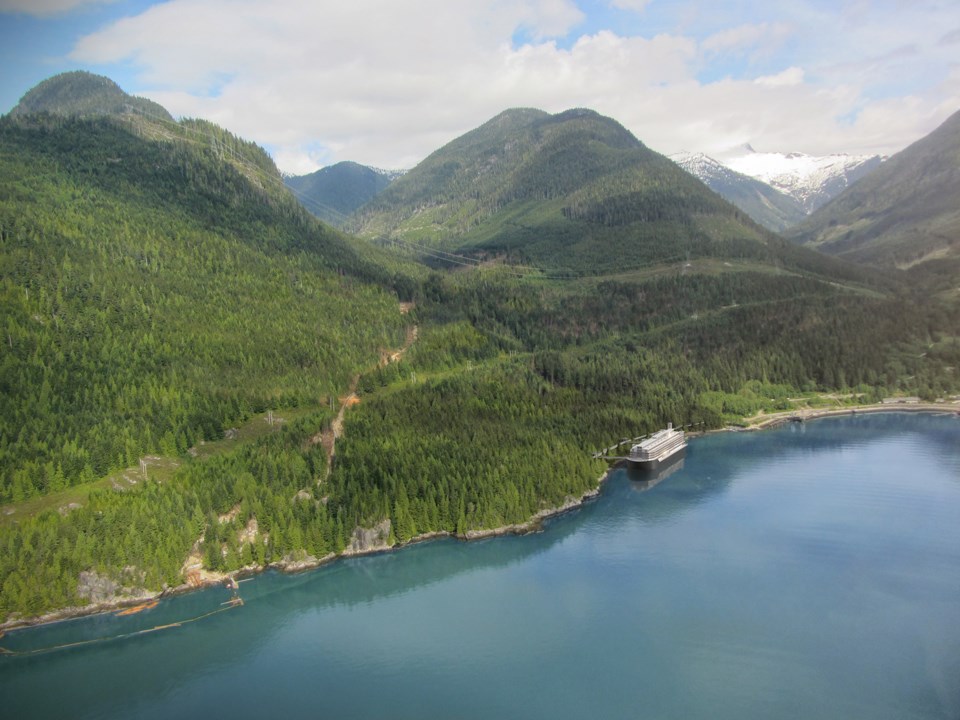The Squamish Nation has decided to use a three-way assessment process involving itself, the province and the federal government in evaluating Woodfibre LNG's proposed floatel.
The floatel is essentially a stationary boat that would house workers at the Woodfibre site. It was proposed as a solution after locals criticized the idea of creating a work camp in the Britannia Beach area.
This new proposal requires the company to notify authorities, who will then examine the idea and decide whether it should be approved.
Spokesperson and councillor Khelsilem (Dustin Rivers) said the Nation's council decided unanimously to pursue a memorandum of understanding for a harmonized review process with the Environmental Assessment Office and Impact Assessment Agency of Canada on May 7.
"We'd participate as equal reviewers," said Khelsilem. "We have an equal seat at the table, basically....Whatever conditions are to be agreed to, have to be agreed to by all the parties."
Previously, the Woodfibre project was subject to an independent assessment by the Squamish Nation, in addition to the usual evaluations from the provincial and federal governments.
This amplification of the Nation's voice marked a significant change in how environmental assessments have normally been done, and the approach made headlines. It also led to a major change in the project — the proposed water cooling system for the facility was swapped for air cooling.
Since Woodfibre was initially subject to an independent review from the Nation, there were questions as to how the floatel amendment would be evaluated. Would there be another independent review from the Nation regarding this item?
However, the Nation's vote in favour of the harmonized process lays the question to rest.
Khelsilem said that opting for this method does not mean the Nation's voice will be diminished, as they will still provide feedback on the matter. Their consent is still required.
The MOU is non-binding, he added, meaning there is some flexibility.
"If at any point, the Nation wanted to withdraw from the process, it has the ability to do so as well," said Khelisilem.
This agreement also pertains only to the floatel amendment, so the Nation can draw up new terms for examining possible further changes to the project.
"Because the amendment is — relative to the project as a whole — a rather minor amendment dealing with just the living quarters for workers, we felt it would be easier and more efficient to do a harmonized process than to do an independent one," he said.
"[For] any other potential amendments, the Nation would reserve the right to determine at that time if it wants to continue. It would pursue another MOU or it could do its own process."
At the moment, he said the Nation still has not formed an opinion on the floatel.
"We're working in good faith to work through the information that's been submitted, weigh that against our own concerns and our own interests in the area, and determine either what mitigation can be requested or what conditions need to be applied," Khelsilem said.
He added the mandate is to study the proposal from the viewpoint of the Nation's interests in its cultural, heritage, environmental and archaeological assets, as well as things like justice for Missing and Murdered Indigenous Women.
In a separate matter involving the project, he said the Nation also has not yet formed an opinion on the Woodfibre's application to extend its environmental certificate by an extra five years.



